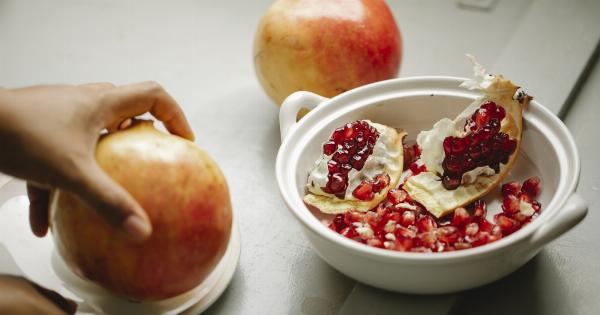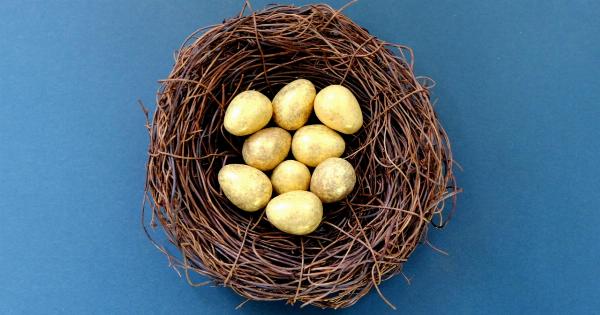With Easter just around the corner, it’s important to enjoy the festivities without getting that uncomfortable bloated feeling.
Indulging in delicious meals and treats is part of the celebrations, but there are simple ways to prevent or minimize bloating. By adopting these tips, you can have a more enjoyable and comfortable Easter holiday.
1. Stay Hydrated
Drinking plenty of water is crucial to maintaining good digestion and avoiding bloating. Water helps to flush out waste and toxins from your body, keeping your digestive system running smoothly.
Make sure to sip on water throughout the day, especially during and after meals, to aid in digestion and prevent bloating.
2. Chew Your Food Thoroughly
Many of us are guilty of rushing through meals, but eating too quickly can lead to bloating. When you eat, take the time to chew your food thoroughly.
Chewing is the first step in the digestion process, and by breaking down food into smaller pieces, you make it easier for your stomach to handle. Slow down, savor each bite, and give your body a chance to properly process and digest the food.
3. Be Mindful of Portions
During Easter feasts, it’s tempting to fill your plate to the brim with all the delicious food available. However, overeating can lead to discomfort and bloating. Instead, be mindful of your portions.
Serve yourself smaller portions and take your time to enjoy each individual dish. Listen to your body’s cues of fullness and stop eating before you feel overly stuffed.
4. Incorporate Fiber-Rich Foods
Fiber is an essential component of a healthy digestive system. It aids in regular bowel movements and prevents constipation, which can contribute to bloating.
Include fiber-rich foods in your Easter menu, such as fruits, vegetables, whole grains, and legumes. These foods not only provide essential nutrients but also help to keep your digestion in check.
5. Limit Carbonated Drinks
Carbonated drinks, such as soda and sparkling water, introduce extra gas into your digestive system, leading to bloating and discomfort. Opt for still water or herbal teas instead, which can help soothe your digestive system and keep bloating at bay.
6. Choose Lean Proteins
High-fat and heavy protein sources can take a toll on your digestive system, leading to bloating. Opt for lean proteins like grilled chicken, fish, or tofu, which are easier to digest and less likely to cause bloating.
Include these lean proteins in your Easter meals to keep your stomach happy and bloating-free.
7. Take a Walk
After indulging in an Easter meal, taking a leisurely walk can aid in digestion and prevent bloating. Physical activity helps to stimulate the muscles in your digestive tract, encouraging food to move through your system more efficiently.
So, gather your family or friends and enjoy a post-meal stroll to ward off bloating.
8. Limit Salt Intake
Excess sodium can cause water retention, leading to bloating. Be mindful of your salt intake during Easter meals by avoiding overly salty dishes and processed foods. Opt for fresh, homemade meals where you can control the amount of salt used.
Instead of salt, flavor your dishes with herbs and spices to reduce the risk of bloating.
9. Practice Stress Management
Stress can wreak havoc on your digestion. When you are stressed, your body responds by releasing stress hormones that can disrupt the normal functioning of your digestive system.
Incorporate stress management techniques into your Easter festivities, such as deep breathing exercises, yoga, or meditation. By keeping stress levels in check, you can reduce the likelihood of bloating.
10. Be Mindful of Trigger Foods
Lastly, be mindful of foods that tend to trigger bloating for you personally. Some individuals may be more sensitive to certain foods, such as dairy products, gluten, or legumes.
Pay attention to your body’s reactions, and if you notice that certain foods consistently cause bloating, consider avoiding or reducing your intake of those specific items.































